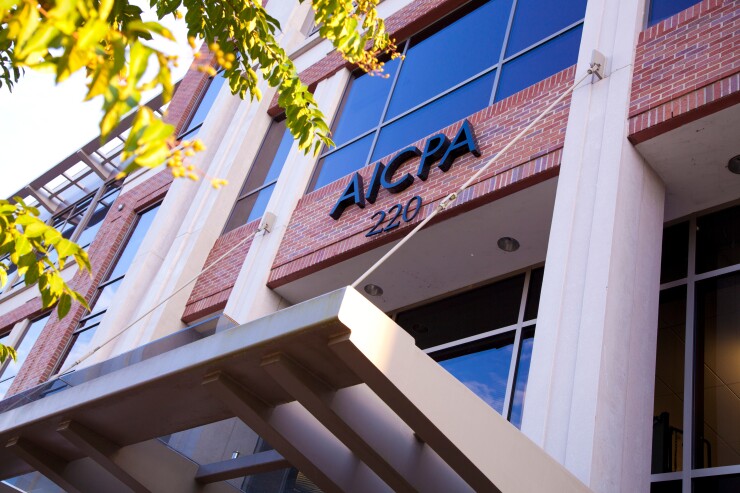AICPA Foundation awards minority doctoral students with a $12,000 fellowship


As part of the AICPA Fellowship for Minority Doctoral Students, which strives to grow and diversify the educator pipeline in accounting programs, the AICPA Foundation offered 23 minority doctoral students a $12,000 fellowship.
Established in 1922 to advance education and professional advancement in accounting, the AICPA Foundation has been supporting aspiring accountants through educational funding for students at all levels, from high school seniors to CPAs pursuing a Ph.D. The foundation created the fellowship over 50 years ago under the influence of John L. Carey, who worked as the AICPA’s vice president and executive director, and often encouraged students from all backgrounds to become CPAs when he was a university professor.
“Guided by a core ideology and principles, the foundation is committed to supporting and growing the next generation of CPAs through three primary focuses: accounting and education outreach, scholarships and fellowships and diversity and inclusion,” said Jan Taylor, senior director of academic and student engagement at the AICPA. “We have made great strides encouraging and providing educational opportunities and promoting the hiring of high-potential minority accounting students over the past 50 years, but our work isn’t finished. We still have a long way to go.”

Christiana Antwi-Obimpeh, who’s a fellowship recipient this year, has always been an overachiever. Now entering her fourth year as a doctoral student at the University of Texas, San Antonio, Antwi-Obimpeh remembers her parents as hard-working individuals who always pushed her to reach her full potential. A valedictorian in high school, Antwi-Obimpeh distinguished herself as a gifted student before working in public accounting for four years and corporate accounting for seven years.
It was a difficult decision to leave a steady income to pursue a Ph.D., and the AICPA’s decision to grant her the scholarship was a “great relief” for the Ohio-based professional. Naturally good at mathematics, Antwi-Obimpeh was always attracted by the problem-solving aspect of accounting, and her first class at Pennsylvania State University nurtured her interest in organizational misconduct and fraud. However, the future professor believed that the accounting profession was in need of people in academia, and that companies could benefit from her research.
“I think there’s a need to bridge the gap between how practitioners, businesses and other organizations interpret information and make decisions, versus what people who are impacted by them actually perceive,” said Antwi-Obimpeh. “Academics can speak from a more analytical perspective and communicate to companies what can be improved, what can be capitalized upon, and what questions they should take the time to answer.”
Antwi-Obimpeh has often seen a discrepancy between companies’ rhetoric and the policies they actually enforced. She says that while firms should continue to have DEI councils and encourage minorities to pursue leadership positions, they should also spread their efforts to the recruiting process. Antwi-Obimpeh noticed that many businesses don’t hire from Hispanic Serving Institutions like hers and, as a result, their workforce doesn’t always reflect the communities they serve. She also thinks that students from underrepresented backgrounds are often barred from the accounting profession because they’ve never been exposed to those careers, and that’s an opinion that Jose Nicolas Arguello also shares.

Currently studying at the University of Tennessee, Knoxville, for his doctorate, Arguello is a first-generation student who’s also been selected as a fellowship recipient. He says that many minority students often turn away from accounting in the belief that it’s a difficult and boring discipline that requires a lot of numbers. However, Arguello benefited from accounting learning and career opportunities during his undergraduate years, when the University of North Texas, which is an HSI, began its Accounting Scholars Program. In his opinion, it’s initiatives like that or the AICPA’s that promote the interest of minority students.
“The AICPA and their donors are so incredibly generous with their Legacy Scholars Program, and it made a huge positive impact on me and the other hundreds of Legacy Scholars,” said Arguello. “I think the AICPA and a lot of public accounting firms are doing a fantastic job with DEI in the profession.”
Attributing most of his success to his mentors and family, Arguello hopes that other students will soon share his enthusiasm for the language of business, the stability of the profession and the opportunities that come with it. Planning to work for PwC in its audit and assurance practice and pursue his CPA licensure, Arguello wants to follow the Mendoza College of Business motto by growing “the good in business” and becoming a positive force in society.


